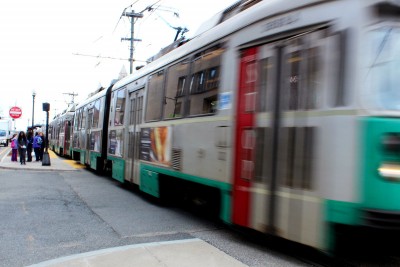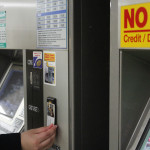Following the release of a report on April 8 in which Massachusetts Gov. Charlie Baker made recommendations for fixing the Massachusetts Bay Transportation Authority, the governor unveiled plans Wednesday to create a more reliable MBTA service.

Baker addressed the immediate need for these improvements in a Wednesday press release, referencing this past winter’s storms as a source of many of the key issues.
“We look forward to the Legislature’s swift action on the reforms necessary to restore the public’s faith in the Commonwealth’s transit system,” he said in the release. “The T failed its stress test this winter when we needed it most, exposing the deep operational problems and lack of planning. We simply cannot afford a repeat, and this legislation sets in motion significant reforms to once again deliver accountability, reliability and the world-class transportation system Massachusetts deserves.”
The legislation would implement a Fiscal Management and Control Board as well as a chief administrator, which would ensure a safer and more customer-friendly service, the release stated. Additionally, the Massachusetts Department of Transportation board would include 11 members, eight serving four-year terms and three serving three-year terms.
Matthias Ruth, a professor in Northeastern University’s School of Public Policy and Urban Affairs, said these reforms are long overdue.
“The last winter storm was clearly a wake up call, and anyone who lives in Boston or even near the Commuter Rail knew that some form of reform is long overdue,” he said. “So in that sense, I think something needed to be done, and everyone seems to be hopeful that this will do the trick.”
Ruth said he takes the Commuter Rail often and ran into issues of his own with service this past winter. He said he is happy to see how Baker’s administration is handling the issue.
“I’m just glad to see that they made the best of the crisis in the sense that they did put it under the microscope, and [they] are now trying to do something about it,” Ruth said. “[In] a city like Boston, if you want to continue to improve the quality of life, you’ve got to have a reliable public transportation system in place.”
Several residents said they would take the T more often if they knew the service would be reliable, but because of the ongoing problems, they choose other transportation options.
Larry Schults, 65, of the West End, said he does not use the T often but local residents are usually able to get to their jobs within the city.
“I heard such awful things on the news, especially for commuters in a place like Quincy, there were days when people couldn’t even get into Boston,” he said. “So I think a large capital investment needs to be made in upgrading the infrastructure.”
Maryann Murphy, 26, of Jamaica Plain, said she is new to her job and just started taking the T, so she would like to see improved communication in the overall service.
“The best thing about more attention on the T could be more communication in the system when something goes wrong,” she said, “or when lines aren’t working, because that seems to be the biggest problem.”
Murphy added that MBTA reforms could contribute to the businesses of the city.
“It’s important for people to get to their jobs, and to just move around the city,” she said. “If the T is better, it could really affect businesses.”
Deb Smith, 47, of Fenway, said she prefers to walk to work because of the unreliable MBTA service, but would reconsider her transportation methods if reforms were made.
“I walk to work, but if I ever use the T, I use the Green Line. Hopefully, we see improved transportation, improved access to the lines,” Smith said. “I mostly prefer not to use the T, just because it’s often broken down, or it takes too long, so if they improve it, I would definitely consider using it more.”
Ellen Cranley contributed to the reporting of this article.




